The Sweat Spot Becomes The #SweatFest: a small LA dance studio reinvents itself on Instagram

The flamboyant LA hippie-ness is accidentally saving humanity from its own insanity. As a stoic New York type who loved hating on LA, I now believe.
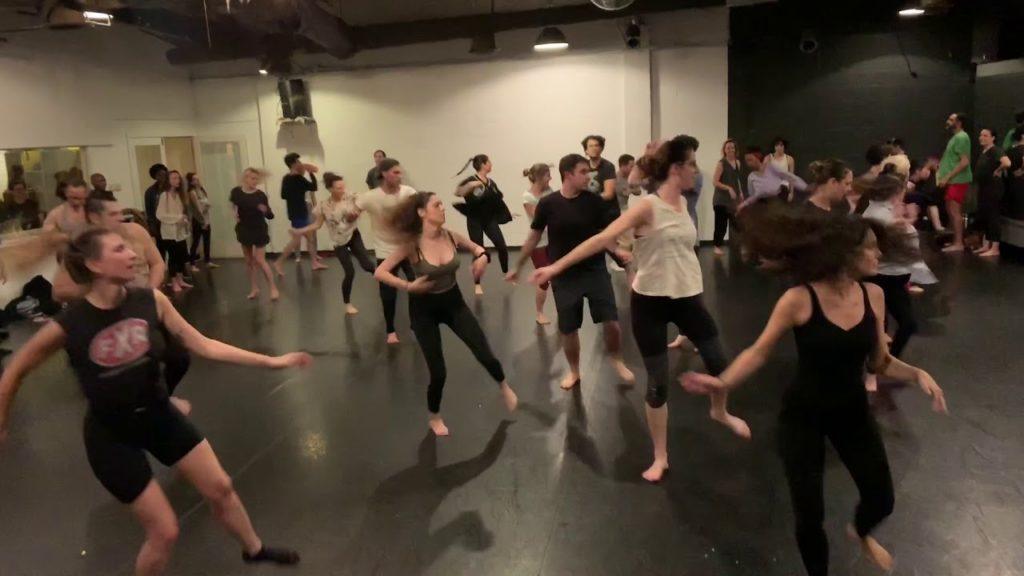
The Sweat Spot is a 2,200 sqft dance studio in the Silverlake neighborhood of Los Angeles, founded by dancer and choreographer Ryan Heffington. It offers a variety of classes including tap, modern, jazz, ballet, and twerking. There are also irreverent daily themes: “Sweaty Sunday” and “Wet Wednesdays” are apparently fan favorites, and in addition, you “Gotta Body on Thursdays” too.
Yelp reviewers call The Sweat Spot their “sanctuary,” “safe space,” and describe Ryan Heffington as “magical,” “guru,” and “good for the soul.” In pre-COVID 19 era, an east coast snob like me would have said, oh, that describes any LA lifestyle business. I would not have known, that deep in this global and personal crisis of social isolation, I would become a total Ryan Heffington believer. All the way in my slightly stale bedroom in Boston, I dance, sweat, laugh, and cry along with him and 7,000 people around the world on Instagram Live.
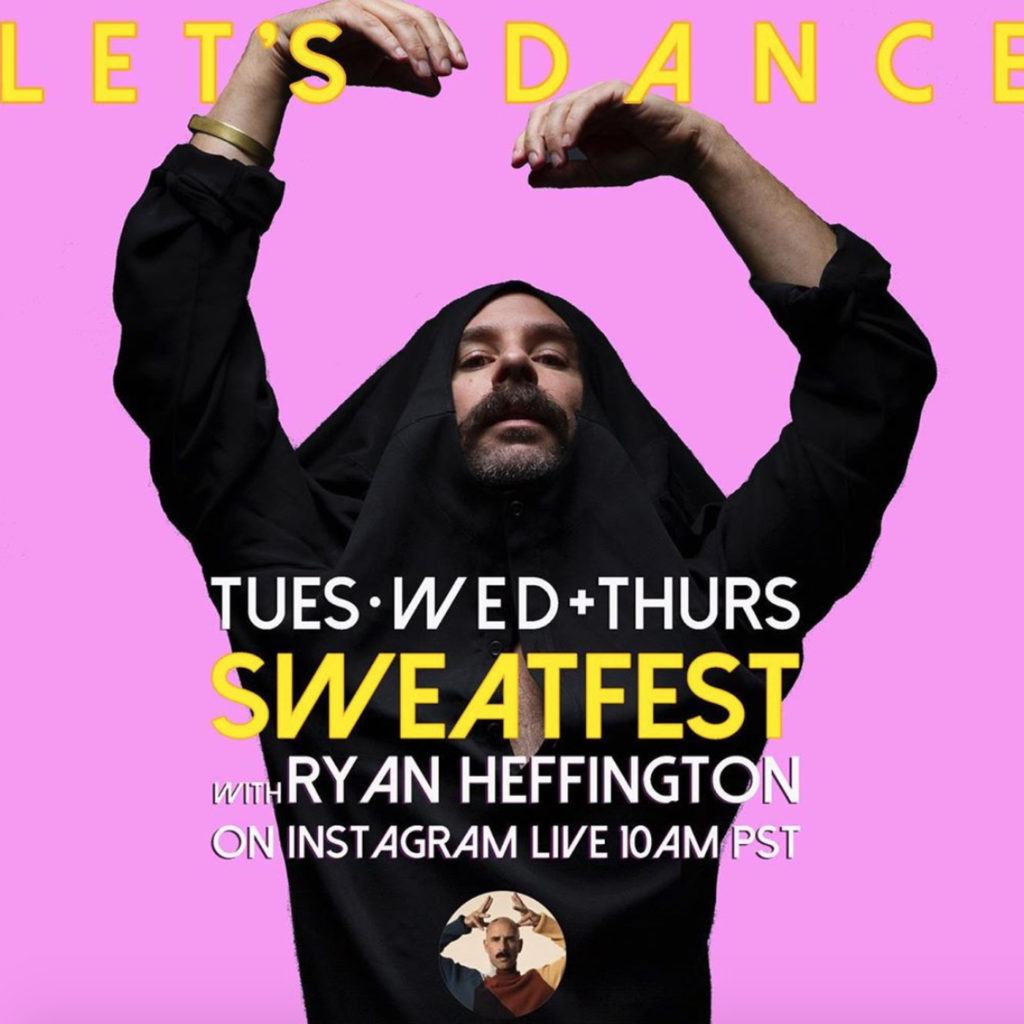
When the virus first hit, the studio had to dramatically shut down like most other small physical businesses. The already under-employed dance instructors at The Sweat Spot went further down into unemployment. So did many of their regular students, often working part time in services and part time marginally in Hollywood. The dance studio closed at the exact same time everyone desperately needed it – the movement, the sweat, an escape from our mental cages, a release.
So Heffington moved his small open-level classes on Instagram Live, because he himself needed to dance away from this reality. Students can donate to him and the dance studio, but they don’t have to. Early adopters danced along and told one another about this “ridiculous bald guy” and his “workout-dance-party-therapy all-in-one.” In a matter of weeks, Heffington’s reach exploded: The Sweat Spot went from a small local dance studio to The #SweatFest in the digital world, for women, men, babies, dogs, and reluctant cats, from Singapore to South Africa, all the way back to Southern California. Neither magic nor virus was responsible for this incredible growth. Rather, it was a simple recipe of a shared human desire to connect, move, and “let it all out,” enabled and amplified by technology.
These Instagram classes are modified for the audience and the circumstance. Heffington’s dance moves are always accessible, but for this particular platform and era, he has developed something extra relatable and extra ridiculous. There are moves named “Pretty Pony,” “Bob Ross” (air painting with a “nasty, nasty brush”), “Happy Hippie,” and “Inflatable Car Wash Man.” My favorite has to be the “Nancy Pelosi Clap.” Sometimes we do work – sweeping the floor, washing the window, sending an email. Sometimes we pick up our “mics” (mine is often a ripened banana almost ready for the classic quarantine banana bread) to sing and pretend we were P!nk. Sometimes we “go to the club” with sunglasses and show off our quarantine outfits. And finally, we cool down by closing our eyes, to feel and thank the 7,000 people dancing with us from their living rooms and backyards, alone together.
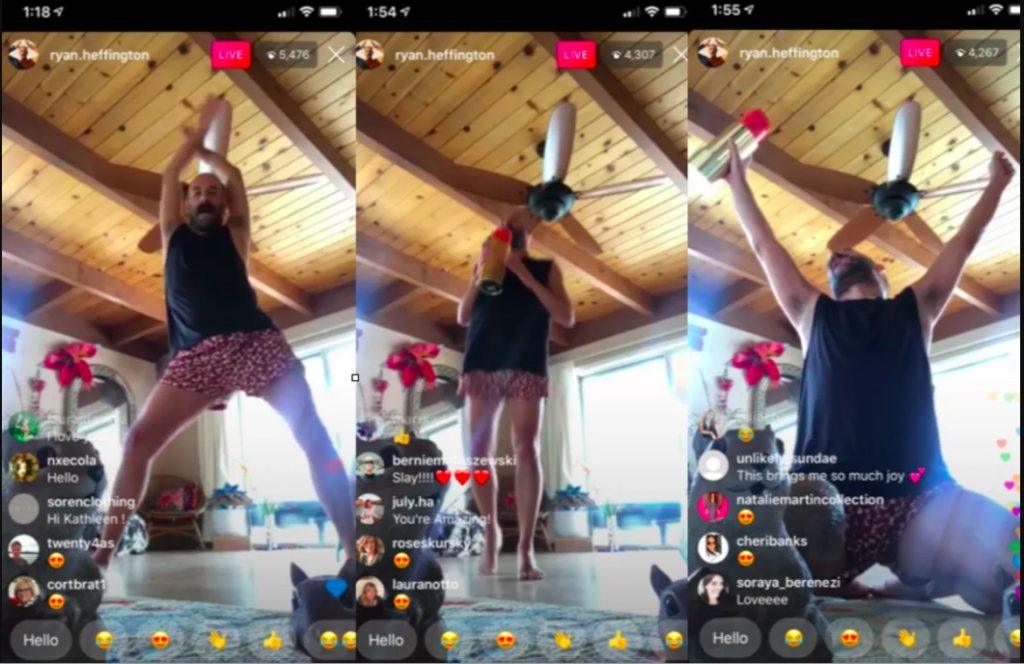
I realize I now sound like the LA-type too, and I’m embracing it. In fact, I desperately need it. This little local dance studio accidently reached so many of us in all parts of the world. Some people use these classes as their daily exercise, some use it as an excuse to be silly and laugh, and some use it as therapy. It’s free, uninhibited, and nonjudgmental. It is a rare moment when stoic New York types dance and sing along with hippie LA types, and relish the ridiculousness that is the world we all live in today.
Ryan Heffington and his #SweatFest classes became a huge success because they are as ridiculous as the time we are in. His jokes and moves resonate with us in profound ways that pre-COVID online cardio videos simply could not. His personality and the LA mentality (“protect your aura”) hit us just right, right now.
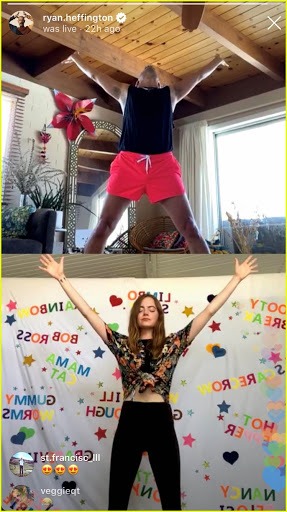
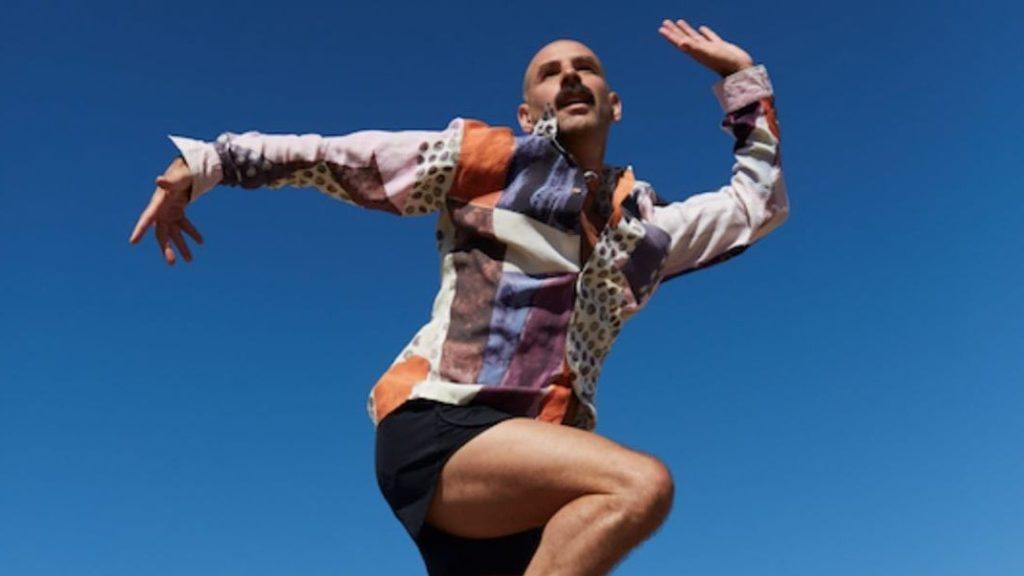
The availability of technology and our free time has also served him well. Classes can be streamed seamlessly, and even synchronized on Zoom for a group of friends to have a dance party together. Some celebrities including P!nk and Emma Stone have also become Ryan’s believers and made guest appearances from their homes, side by side with Ryan.
Heffington and his small business seemed to have been lucky, and are one of the few bright spots in the otherwise dark era of COVID-19. Many other physical businesses do not happen to strike the right cord with us in our shared experiences – high-end restaurants, for example – and may not survive. But luck of being a right fit is not all. To make this explosive growth possible, Heffington needed to maintain significant frequency and momentum. He worked tirelessly to plan, promote, curate music, host, dance, and repost feedback for each of the five classes every week.
In a monotonous new normal of staying home, dancing with Ryan Heffington has surfaced to near top of my daily priorities, and occupied a prominent spot as a recurring calendar item in my Outlook. For Heffington and his small team at The Sweat Spot, they need to think hard about what’s next. This crisis will eventually go away, and the stoic New York types will eventually go back to their regular programming: flavorless and overpriced in-person fitness classes. Heffington needs to convert his movement into a longer-lasting spirit, an irreversible awakening, and a permanent lifestyle.



This is great! Thanks for writing this! I’d be curious to know if Ryan has actually made more money by doing Instagram Live sessions and relying on donations? With his reach exploding, it would be interesting if he had made more money and if he felt a total switch to online sessions would work. My personal opinion is that he should use his current popularity and celebrity fanfare to try and grow offline, similar to SoulCycle. I just believe the offline experience is totally different and more powerful than online and thus once the crisis ends, there will be less people willing to dance at home. He could, however, offer online components for registered members. Another factor to consider is whether people are attracted to his eccentric style or SweatShop/SweatFest in general. If it’s the latter then online classes after the crisis could potentially be very useful since he will be able to reach more people.